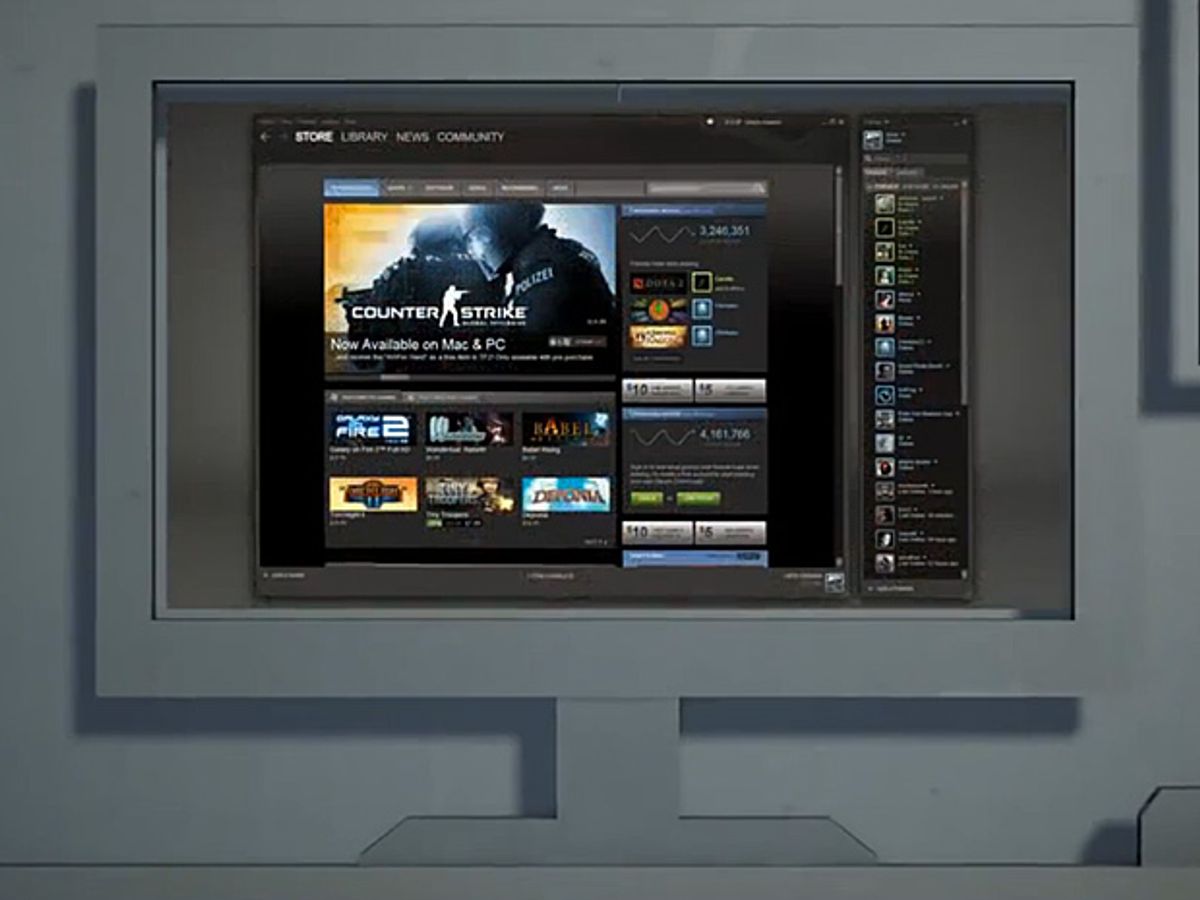UPDATE: Valve has revealed it is working with multiple third-party developers to bring Steam gaming machines to market in 2014. The game developer also plans to ship its own high-performance prototype of "Steam Machines" to 300 Steam users who meet the requirements for a hardware beta test.
Valve has dominated the PC gaming market with its popular Steam platform for buying and playing PC games. Now the game developer has begun preparing for a future without PCs by announcing SteamOS, a free operating system designed to run PC games on the big TV screen in your living room.
The SteamOS may pave the way for a long-rumored Steam Box—made by either Valve or third-party developers—that could give PC gaming a bigger foothold in the traditional domain of console gaming platforms such as the Sony PlayStation and Microsoft XBox, according to BBC News. More importantly, SteamOS could help Valve move both its 50 million Steam users and PC gaming away from traditional PCs at a time when PC sales have fallen dramatically.
Valve is touting SteamOS as an operating system optimized for gaming with "significant performance increases in graphics processing," and promises that gamers will have the option to stream Windows or Mac versions of games to their TV sets through future Steam Box machines running SteamOS.
Gabe Newell, co-founder of Valve, envisions a future environment where gaming seamlessly moves wherever gamers go, whether he or she is in front of a PC, sitting in the living room, or on the move. Newell described his vision during a Linux developers event last week—making it no surprise that Valve chose to build its SteamOS around Linux, a free open-source operating system.
Signs of Valve's latest move have been obvious for a while. Valve took a first step toward the idea of PC gaming in living rooms with its Big Picture mode, designed to optimize PC games for HDTVs rather than traditional PC screens.
Newell has also openly criticized Microsoft's Windows operating system that has served as the default platform for most PC games, and has called Linux the future of gaming. SteamOS likely represents Valve's first step in a broader plan to "erase Windows from the PC gaming equation entirely," as Forbes puts it.
Such a Linux-based system might even broaden the challenge to Windows by expanding its offerings beyond games, according to Slate. Steam already offers "financial assistance and creative applications," and the recent Valve announcement promises music and video services coming soon for both SteamOS and Steam.
Still, weaning PC gamers off of Windows won't be easy. But Ars Technica weighed in with the suggestion of making the long-rumored "Half Life 3" game in Valve's popular series a SteamOS exclusive as a potential draw. (An Ars Technica reader also suggested simply making the SteamOS version of "Half Life 3" free so as to garner good will without the inevitable complaints regarding exclusivity.)
The SteamOS announcement yesterday represents one of three expected announcements from Valve this week. Many industry observers expect the Steam Box hardware side of the equation to represent at least one of the other two big unveilings, even if some disagree about whether Valve itself will seriously develop and market its own machine or simply allow third-party hardware developers to have a go.
Photo: Valve Corp.
Jeremy Hsu has been working as a science and technology journalist in New York City since 2008. He has written on subjects as diverse as supercomputing and wearable electronics for IEEE Spectrum. When he’s not trying to wrap his head around the latest quantum computing news for Spectrum, he also contributes to a variety of publications such as Scientific American, Discover, Popular Science, and others. He is a graduate of New York University’s Science, Health & Environmental Reporting Program.



